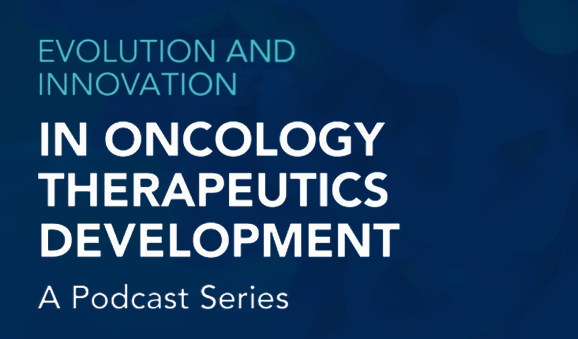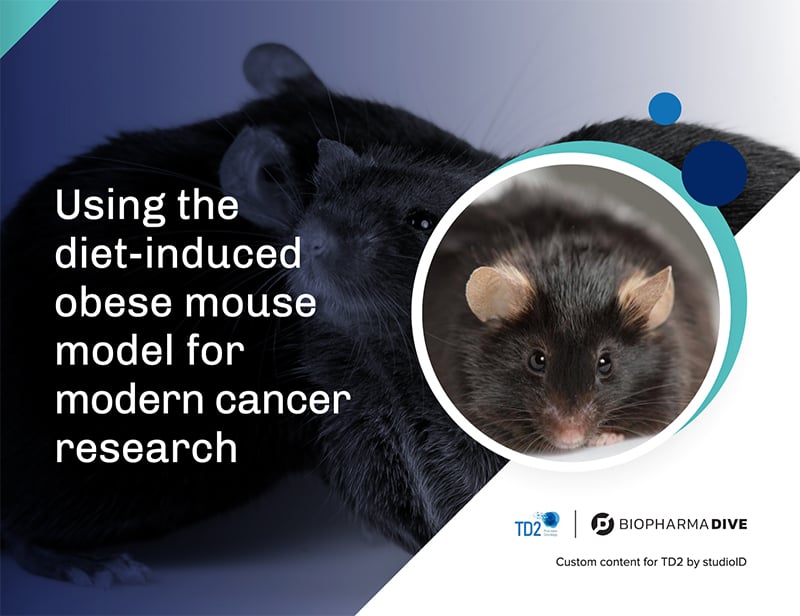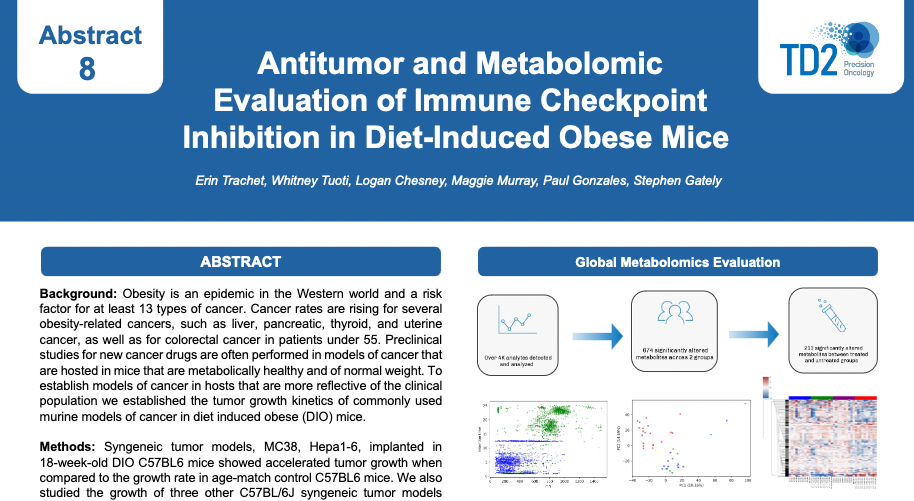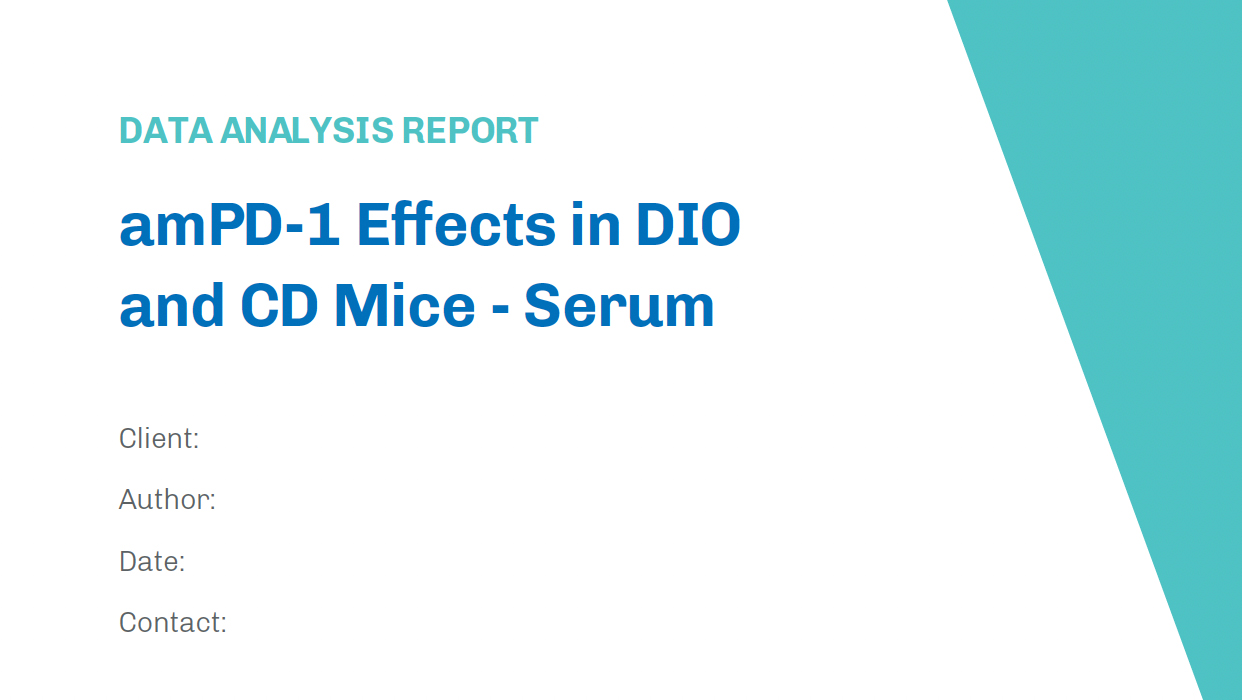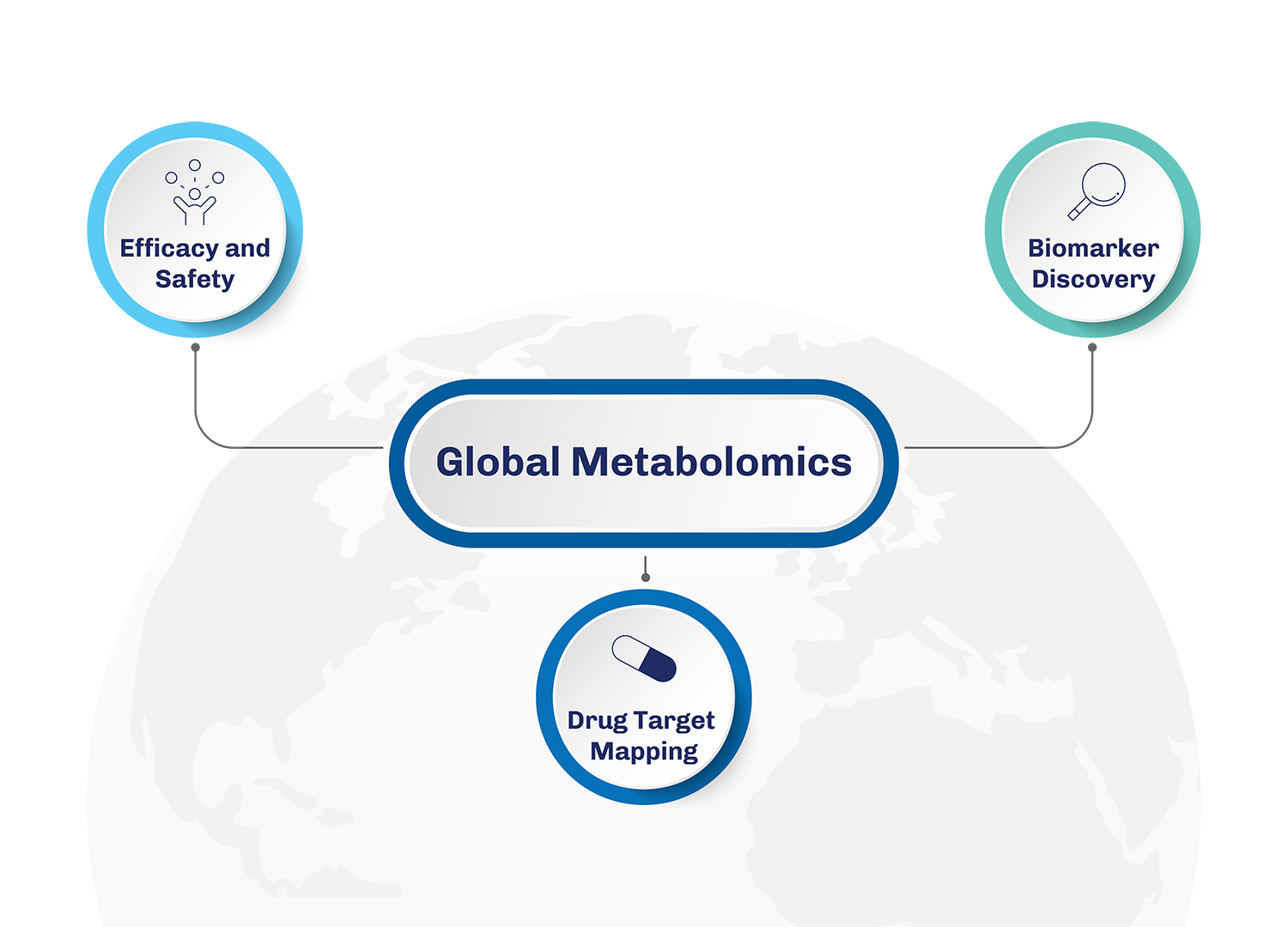Enhance Your Research with TD2’s Metabolomics & Proteomics Services
Elevate your cancer drug discovery research with TD2’s cutting-edge Metabolomics and Proteomics Services for in vivo oncology studies. Metabolomic and proteomic analysis can be used in the preclinical and early clinical stages of drug development to assess the efficacy, safety, and drug-target mapping of potential cancer drugs. This information can help you make informed decisions about which drug candidates to pursue further, reducing attrition rates and streamlining your drug development process. Our commitment to delivering meaningful data allows you to focus on your research and make groundbreaking discoveries.

Experience the Benefits of TD2’s Metabolomic and Proteomic Services:
- Broad Coverage: Our untargeted assays deliver comprehensive coverage of small molecules and metabolites.
- Versatile applications: Biomarker development, new target identification, off-target effects, population-based studies, and patient stratification
- Combined Proteomics: Enrich your metabolomics data by incorporating specialized proteomics assays.
- Simplified Data Analysis: We take care of the complex data processing, presenting you with a clear and concise data analysis report.
In-Depth Global Metabolomics Profiling for Maximum Insights
Our suite of complementary LC/MS assays offers a wide-ranging view of the small molecule landscape, ensuring you have the most complete data at your fingertips. Our platform is designed to analyze various chemicals, including lipids and central carbon metabolites, using a selection of assays.
Learn more about our Metabolomics & Proteomics Services.
Contact our experts to help advance your immunotherapy candidate with our trusted preclinical research services.
Case Study
The Establishment and Validation of Diet Induced Obese mice for cancer research using metabolomic and proteomic analysis
TD2 has validated the use of diet-induced obese (DIO) mice to establish models of cancer in hosts that are more reflective of the clinical population. Utilizing advanced metabolomic and proteomic analysis, TD2 analyzed the differences in αPD-1 response between DIO and Controlled diet (CD) mice:
- Global metabolomic profiling revealed significant metabolite alterations in DIO mice compared to CD mice. Specific metabolite alteration was found in a key metabolism pathway : Pentose Phosphate Pathway.

Figure 1: DIO mice showed an overall stronger response to αPD-1 treatment compared to CD mice with very little similarity of metabolites in treatment groups (left). Pentose phosphate pathway intermediates including Ribose-5-Phosphate showed a striking decrease in response to αPD-1 in DIO mice only (right).
- Global proteomic analysis corroborated the metabolomic finding by showing significant protein alterations in metabolic pathways including the Warburg effect, Glycolysis, and alterations in PPP proteins.

Figure 2: Global proteomic evaluation identified enriched pathways in DIO untreated mice compared to DIO treated mice (left). Proteomic analysis also identified pentose phosphate pathway proteins to be altered mirroring the metabolomic data.

Comprehensive Preclinical Services
Regardless of the development question, TD2 has the specialized model you need to move your drug forward. Clients have access to humanized models, induction models, as well as specialty surgical and orthotopic models. We specialize in all areas of oncology and work diligently to understand your therapeutics’ mechanism of action. We match that with clinical development strategies for an efficient path forward.
- Non-GLP Safety/Tolerability
- In vitro Pharmacology Assays
- DMPK/ADME
- Orthotopic Tumor Models
- CAR-T and Adoptive Cell Therapy models
- Syngeneic mouse models
- In vivo Optical Imaging
- Humanized Immune Checkpoint Inhibitor Mouse Models
- Diet-Induced Obesity (DIO) Tumor Models
- Flow Cytometry
Additional Resources
Preclinical, Posters and Publications
E-Book: Using the Diet Induced Obese Mouse Model for Modern Cancer Research
Preclinical, Posters and Publications
SITC 2023 Poster: Antitumor and metabolomic evaluation of immune checkpoint inhibition in diet-induced obese mice
Preclinical, Posters and Publications
Metabolomics Sample Data Analysis Report
Preclinical, Posters and Publications
SITC 2023 Poster: Antitumor and metabolomic evaluation of immune checkpoint inhibition in diet-induced obese mice
GET STARTED
TD2 navigates the complexities of drug discovery to guide you down a smarter path for earlier, more complete results.
Contact us today to learn more about our ADME and biomarker offerings and how we can set your treatment up for success from the start.

